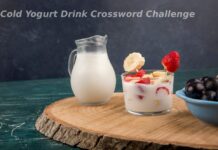We all want our children to grow up happy and healthy, and a significant factor in that is making sure their little brains get the right stuff. One of the ways to make that happen is by making some dietary changes that will work to increase brain power.
But, it is also true that kids don’t always want to “eat healthily.” The struggle of getting your kids to eat veggies can be tough, but fortunately, there are a lot of surprising foods that can help improve your kid’s brainpower without causing a big fuss!
In this list, we have compiled 7 different kid-friendly sources of brain nutrition:
1) Sweet Potato
Sweet potatoes: the sweeter alternative to regular old potatoes, a fall favorite, and a brain-boosting super-food. Sweet potatoes, specifically purple sweet potatoes, have been shown to protect the brain and improve learning and memory functions. One animal study reported that the high levels of anthocyanins (antioxidants that help reduce inflammation) present in purple sweet potatoes are to thank for such brain benefits.
The best thing about this food is that it can be served in so many ways! Kids is already prone to liking them thanks to their sweet flavor, but you can use them in stews, pies, or even as a healthy chip replacement! If your picky eater is super stubborn, then you should try out products like the sweet potato version of Julia’s Table Wraps, which are a great way to sneak brain foods into your child’s diet.
2) Peanut Butter
Studies show that peanut butter is an excellent addition to any child’s daily diet. Not only is it jam-packed with protein, but its fat and calorie content is also relatively high, which means it will make a great source of energy in the long run.
When it comes to brain health, the real super-element is resveratrol. Resveratrol is a bioactive found in peanuts that is believed to improve blood flow to the brain by as much as 30%! This means that your child’s cognitive ability will get a big boost.
Cognitive memory includes long-term memory, short-term memory, the ability to recall facts, and other mental processes. So, you should try to sneak peanut butter into your kid’s diet whenever you can! You can use it as a dip for fruits, include it in casseroles or baked goodies, or even just spread it on some toast!
3) Flax Seeds
Implementing seeds in your child’s diet is an excellent idea because they are often so small that kids won’t even know they are there. Flax seeds are especially useful because they can be eaten raw, but also act as a great source of fiber.
The fiber content in flax seeds is excellent for improving your child’s digestive health, and the omega-3 fatty acids in these mighty seeds help to improve cognitive function and memory retention. Fiber and omega-3s can be especially helpful in the morning, when your child needs the energy to focus and learn.
Flax seeds can be an easy addition to your child’s diet if you include them in foods like oatmeal or bake them into some yummy muffins. Products like the super seeds version of Julia’s Table Rolls or Julia’s Table Bread come with the seeds already baked in, so you can spend less time in the kitchen and more time with your little one while their brain gets a boost.
4) Eggs
Eggs contain a lot of protein and healthy fat, which means they make for a great source of energy. You might not know that they are also incredibly packed with brain-boosting nutrients.
According to Age Right, eggs contain choline, which is an essential nutrient for brain development and cognitive function. Choline can help your child’s memory, focus, and problem-solving skills, so you should try to include eggs in their diet as often as possible. They also contain vitamins B6 and B12, which are great for keeping your child’s mind sharp.
On top of that, eggs are very versatile! Including eggs in your kid’s diet is a no-brainer because you can cook them in so many ways. You can boil them, fry them, or even scramble them. With a fantastic flavor and texture, eggs are a great choice for breakfast and also a good opportunity to sneak some brain food into your kid’s diet!
5) Hemp Seeds
Adding hemp seeds is another great seed option for improving brain health!
According to the Health Works Collective, Hemp seeds contain a ton of omega-3 fatty acids. These healthy fats help to improve blood flow in the brain, which means that your child will be able to focus and think more clearly. Plus, these seeds contain a lot of vitamin B1, which is great for promoting the nervous system and overall brain development.
Hemp seeds can be eaten raw or combined into a great shake, and they are also a tasty addition to your child’s morning cereal. And you can always try out Julia’s Table Bread and Julia’s Table Rolls for some hemp seeds baked right into the bread.
6) Oranges
Oranges are another great fruit option because they are good for the brain, sweet, and are already a kid’s favorite!
These bright fruits contain a lot of vitamin C, which is great for cognitive function. Vitamin C can help improve memory retention and concentration because it eases the communication between neurons, which allows your child to learn and store information.
Oranges are especially useful for children who need to remember large amounts of information because of academic or social situations, like quizzes or presentations.
Some great ways to use oranges in your child’s diet are to include them as a side to be eaten with breakfast or lunch, in a fruit salad, or even just to eat plain. They are very easy for kids to grab and eat, so they can be used as a quick snack that will promote brain health.
7) Cauliflower
Cauliflower, like many other vegetables, is a great choice for brain health.
Similar to eggs, this vegetable contains a lot of choline, which is very good for cognitive function and memory retention. It can also help protect your child’s brain against dementia or Alzheimers in the future.
Cauliflower can be a bit bland and not very exciting for children, and this is not helped by the fact that it is a vegetable. If you want to get this into your child’s diet, you might have to hide it in another regular food item.
One great option for this is the cauliflower version of Julia’s Table Wraps, which is a great substitute for tortillas. You can make any item that you would typically make using tortillas with this healthier option!
Conclusion
Eating a lot of brain food can be very beneficial to your child’s cognitive function. By including these awesome foods in your kid’s diet, you will be giving them the nutrients they need to improve memory retention, concentration, and neural connectivity.
Give these foods a shot – your kid will thank you later!















